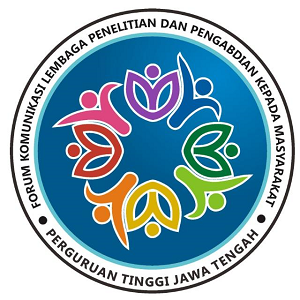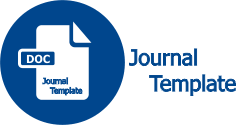ALAT BUKTI KETERANGAN SAKSI DALAM PERKARA PIDANA SESUDAH PUTUSAN MAHKAMAH KONSTITUSI No. 65/PUU-VIII/2010 TANGGAL 2 AGUSTUS 2011
DOI:
https://doi.org/10.33061/rsfu.v5i1.4566Abstract
This study is entitled evidence of witness testimony in criminal cases after the Constitutional Court decision No. 65 / PUU-VIII / 2010, dated August 2, 2011. The background of the problem is that juridically, theoretically, even practically, the evidence for witness testimony is what the witness heard himself, saw himself and experienced himself by mentioning the reasons for his knowledge. However, after the decision of the Constitutional Court No. 65 / PUU-VIII / 2010, there has been a fairly fundamental change because the interpretation of the Constitutional Court on witnesses and evidence of witness testimony includes people who can provide information in the context of investigation, prosecution and trial of a criminal act which he does not always hear himself, he saw for himself and he experienced it himself. The Constitutional Court's decision fundamentally changes the value of proof of witness testimony in criminal cases. The purpose of this research is to examine and describe the evidence of witness testimony in criminal cases and their juridical implications in criminal justice after the Constitutional Court decision No. 65 / PUU-VIII / 2010, dated 2 August 2011. Research method, this type of research is normative juridical research. The nature of the research is descriptive. The type of data used is secondary data. The data collection technique is done by using literature study. The data that has been collected are analyzed juridically qualitative. The result of the research is that after the Constitutional Court decision no. 65 / PUU-VIII / 2010 dated August 2, 2011, there is an expansion of the concept of witness testimony which was originally “a person who can provide information in the context of investigation, prosecution and trial of a crime that he has heard himself, he has seen and experienced himself , which was later expanded to become "a person who can provide information in the context of investigating, prosecuting and judging a criminal act which he does not always hear himself, he sees and experiences himself.References
Andi Hamzah dan Irdan Dahlan. 1984. Perbandingan KUHAP, HIR dan Komentar. Jakarta :
Ghalia Indonesia.
Abdulkadir Muhammad. 2004. Hukum dan Penelitian Hukum. Bandung : PT Citra Aditya
Bakti : Bandung.
Lilik Mulyadi. 1996. Hukum Acara Pidana, PT. Citra Aditya Bakti, Bandung
M Yahya Harahap. 2001. Pembahasan Permasalahan dan Penerapan KUHAP. Jakarta :
Pustaka Sinar Kartini.
M. Yahya Harahap. 2006. Pembahasan Permasalahan Dan Penerapan KUHAP Penyidikan
Dan Penuntutan. Jakarta : Sinar Grafika.
Ronny Hanitijo Soemitro. 1990. Metodologi Penelitian Hukum dan Jurimetri. Jakarta : Ghalia
Indonesia.
Soerjono Soekanto. 1986, Pengantar Penelitian Hukum, UI Press: Jakarta
Soerjono Soekanto, dan Sri Mamudji, 2006, Penelitian Hukum Normatif, Suatu Tinjauan
Singkat, Jakarta : Rajagrafindo Persada.
Wirjono Prodjodikoro.1980. Tindak-Tindak Pidana Tertentu Di Indonesia. Jakarta, PT Eresco
Jakarta-Bandung.
PERUNDANG-UNDANGAN DAN PUTUSAN HAKIM
Undang-Undang No. 8 Tahun 1981 Tentang Hukum Acara Pidana.
Putusan Mahkamah Konstitusi No. 65/PUU-VIII/2010, Tanggal 2 Agustus 2011
Downloads
Additional Files
Published
Issue
Section
License
- Hak publikasi atas semua materi informasi yang tercantum dalam situs jurnal ini dipegang oleh dewan redaksi/editor dengan sepengetahuan penulis. Pengelola Jurnal akan menjunjung tinggi hak moral penulis.
- Aspek legal formal terhadap akses setiap informasi dan artikel yang tercantum dalam situs jurnal ini mengacu pada ketentuan lisensi Creative Commons Atribusi-NonCommercial-No Derivative (CC BY-NC-ND), yang berarti bahwa hanya dengan izin penulis, informasi dan artikel Jurnal PKM dapat didistribusikan ke pihak lain dengan tanpa merubah bentuk aslinya untuk tujuan non-komersial.
- Setiap terbitan Jurnal PKM, baik cetak maupun elektronik, bersifat open access untuk tujuan pendidikan, penelitian, dan perpustakaan. Di luar tujuan tersebut, penerbit atau pengelola jurnal tidak bertanggung jawab atas terjadinya pelanggaran hak cipta yang dilakukan oleh pembaca atau pengakses.



















